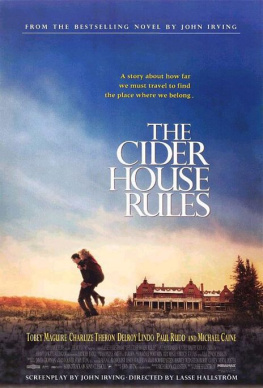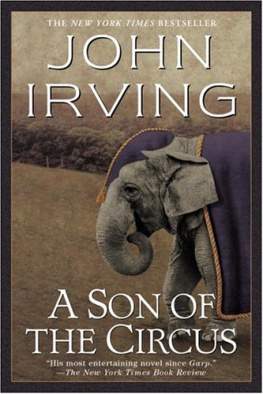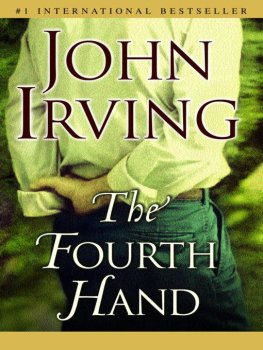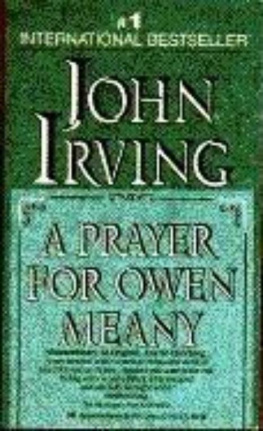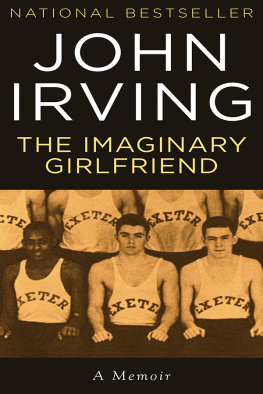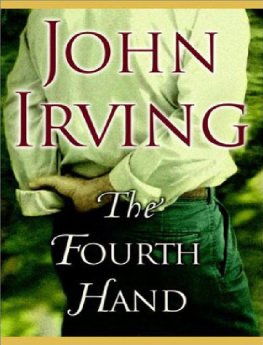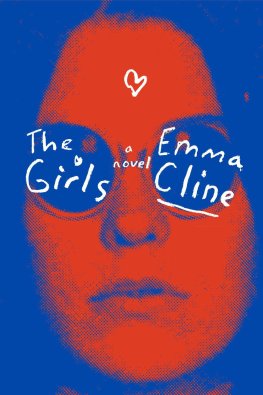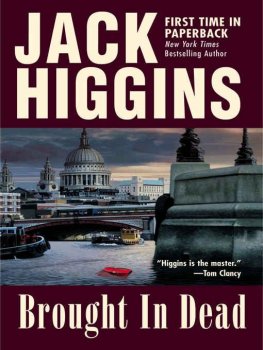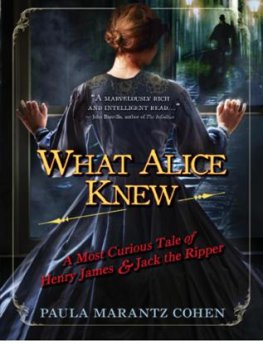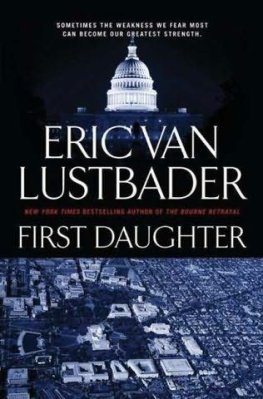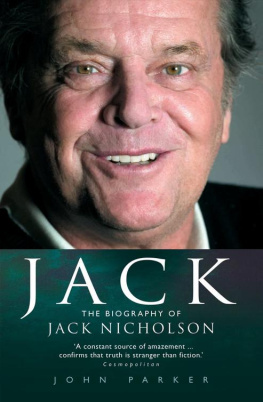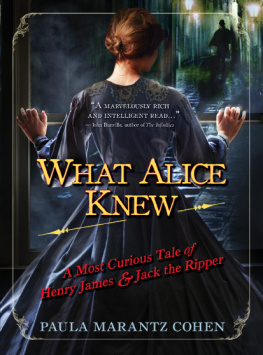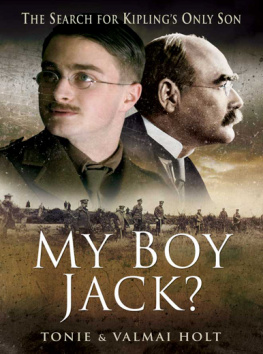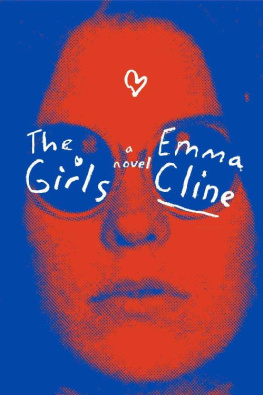John Irving
UNTIL I FIND YOU
A Novel
For my youngest son, Everett, who made me feel young again. With my fervent hope that when youre old enough to read this story, you will have had (or still be in the midst of) an ideal childhoodas different from the one described here as anyone could imagine.
What we, or at any rate what I, refer to confidently as memorymeaning a moment, a scene, a fact that has been subjected to a fixative and thereby rescued from oblivionis really a form of storytelling that goes on continually in the mind and often changes with the telling. Too many conflicting emotional interests are involved for life ever to be wholly acceptable, and possibly it is the work of the storyteller to rearrange things so that they conform to this end. In any case, in talking about the past we lie with every breath we draw.
WILLIAM MAXWELL,
So Long, See You Tomorrow1. In the Care of Churchgoers and Old Girls
According to his mother, Jack Burns was an actor before he was an actor, but Jacks most vivid memories of childhood were those moments when he felt compelled to hold his mothers hand. He wasnt acting then.
Of course we dont remember much until were four or five years oldand what we remember at that early age is very selective or incomplete, or even false. What Jack recalled as the first time he felt the need to reach for his moms hand was probably the hundredth or two hundredth time.
Preschool tests revealed that Jack Burns had a vocabulary beyond his years, which is not uncommon among only children accustomed to adult conversationespecially only children of single parents. But of greater significance, according to the tests, was Jacks capacity for consecutive memory, which, when he was three, was comparable to that of a nine-year-old. At four, his retention of detail and understanding of linear time were equal to an eleven-year-olds. (The details included, but were not limited to, such trivia as articles of clothing and the names of streets.)
These test results were bewildering to Jacks mother, Alice, who considered him to be an inattentive child; in her view, Jacks propensity for daydreaming made him immature for his age.
Nevertheless, in the fall of 1969, when Jack was four and had not yet started kindergarten, his mother walked with him to the corner of Pickthall and Hutchings Hill Road in Forest Hill, which was a nice neighborhood in Toronto. They were waiting for school to be let out, Alice explained, so that Jack could see the girls.
St. Hildas was then called a church school for girls, from kindergarten through grade thirteenat that time still in existence, in Canadaand Jacks mother had decided that this was where Jack would begin his schooling, although he was a boy. She waited to tell him of her decision until the main doors of the school opened, as if to greet them, and the girls streamed through in varying degrees of sullenness and exultation and prettiness and slouching disarray.
Next year, Alice announced, St. Hildas is going to admit boys. Only a very few boys, and only up to grade four.
Jack couldnt move; he could barely breathe. Girls were passing him on all sides, some of them big and noisy, all of them in uniforms in those colors Jack Burns later came to believe he would wear to his gravegray and maroon. The girls wore gray sweaters or maroon blazers over their white middy blouses.
Theyre going to admit you, Jacks mother told him. Im arranging it.
How? he asked.
Im still figuring that out, Alice replied.
The girls wore gray pleated skirts with gray kneesocks, which Canadians called knee-highs. It was Jacks first look at all those bare legs. He didnt yet understand how the girls were driven by some interior unrest to push their socks down to their ankles, or at least below their calvesdespite the school rule that knee-highs should be worn knee-high.
Jack Burns further observed that the girls didnt see him standing there, or they looked right through him. But there was onean older girl with womanly hips and breasts, and lips as full as Alices. She locked onto Jacks eyes, as if she were powerless to avert her gaze.
At the age of four, Jack wasnt sure if he was the one who couldnt look away from her, or if she was the one who was trapped and couldnt look away from him. Whichever the case, her expression was so knowing that she frightened him. Perhaps she had seen what Jack would look like as an older boy, or a grown man, and what she saw in him riveted her with longing and desperation. (Or with fear and degradation, Jack Burns would one day conclude, because this same older girl suddenly looked away.)
Jack and his mom went on standing in the sea of girls, until the girls rides had come and gone, and those on foot had left not even the sound of their shoes behind, or their intimidating but stimulating laughter. However, there was still enough warmth in the early-fall air to hold their scent, which Jack reluctantly inhaled and confused with perfume. With most of the girls at St. Hildas, it was not their perfume that lingered in the air; it was the smell of the girls themselves, which Jack Burns would never grow used to or take for granted. Not even by the time he left grade four.
But why am I going to school here? Jack asked his mother, when the girls had gone. Some fallen leaves were all that remained in motion on the quiet street corner.
Because its a good school, Alice answered. And youll be safe with the girls, she added.
Jack must not have thought so, because he instantly reached for his moms hand.
In that fall of the year before Jacks admission to St. Hildas, his mother was full of surprises. After showing him the uniformed girls, who would soon dominate his life, Alice announced that she would work her way through northern Europe in search of Jacks runaway dad. She knew the North Sea cities where he was most likely to be hiding from them; together they would hunt him down and confront him with his abandoned responsibilities. Jack Burns had often heard his mother refer to the two of them as his fathers abandoned responsibilities. But even at the age of four, Jack had come to the conclusion that his dad had left them for goodin Jacks case, before he was born.
And when his mom said she would work her way through these foreign cities, Jack knew what her work was. Like her dad, Alice was a tattoo artist; tattooing was the only work she knew.
In the North Sea cities on their itinerary, other tattooists would give Alice work. They knew shed been apprenticed to her father, a well-known tattooer in Edinburghofficially, in the Port of Leithwhere Jacks mom had suffered the misfortune of meeting his dad. It was there he got her pregnant, and subsequently left her.
In Alices account, Jacks father sailed on the New Scotland, which docked in Halifax. When he was gainfully employed, he would send for heror so he had promised. But Alice said she never heard from himonly of him. Before moving on from Halifax, Jacks dad had cut quite a swath.
Born Callum Burns, Jacks father changed his first name to William when he was still in university. His father was named Alasdair, which William said was Scots enough for the whole family. In Edinburgh, at the time of his scandalous departure for Nova Scotia, William Burns had been an associate of the Royal College of Organists, which meant that he had a diploma in organ-playing in addition to his bachelors in music. When he met Jacks mother, William was the organist at South Leith Parish Church; Alice was a choirgirl there.
For an Edinburgh boy with upper-class pretensions and a good educationWilliam Burns had gone to Heriots before studying music at the University of Edinburgha first job playing the organ in lower-class Leith might have struck him as slumming. But Jacks dad liked to joke that the Church of Scotland paid better than the Scottish Episcopal Church. While William was an Episcopalian, he liked it just fine at the South Leith Parish, where it was said that eleven thousand souls were buried in the graveyard, although there were not more than three hundred gravestones.


